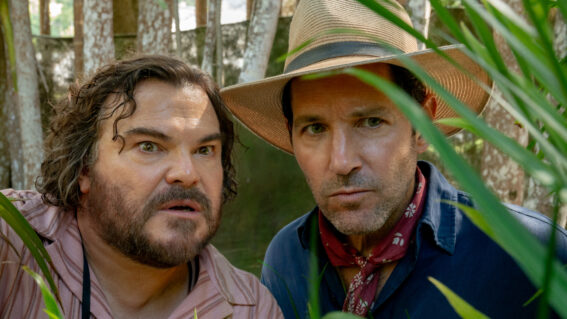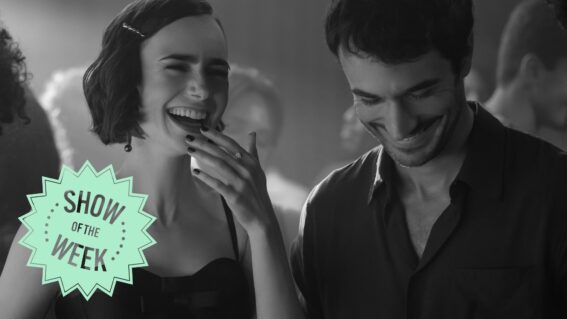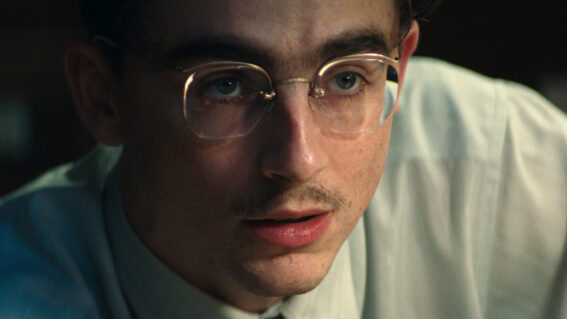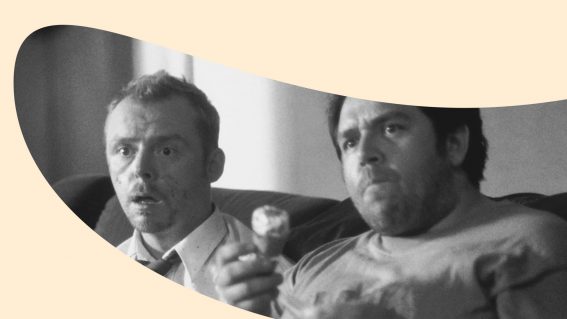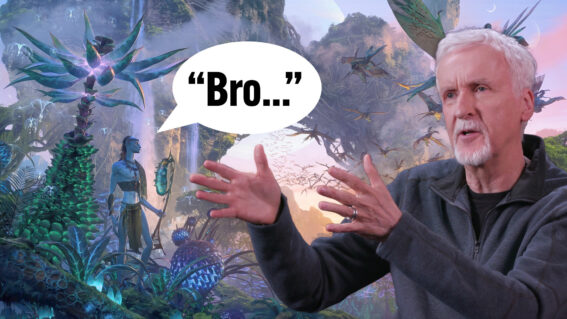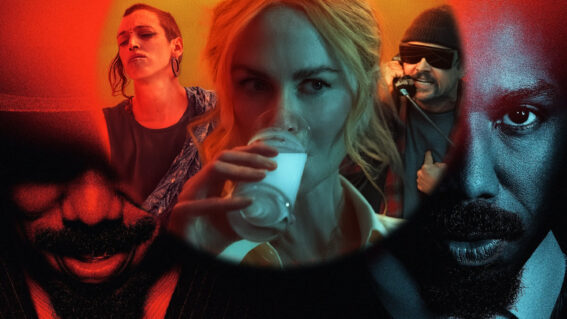The many faces of Nicolas Cage – surfers, cops, killers and more
Nicolas Cage’s filmography – including his latest, The Surfer – is a fever dream: tender, terrifying, and totally unhinged.
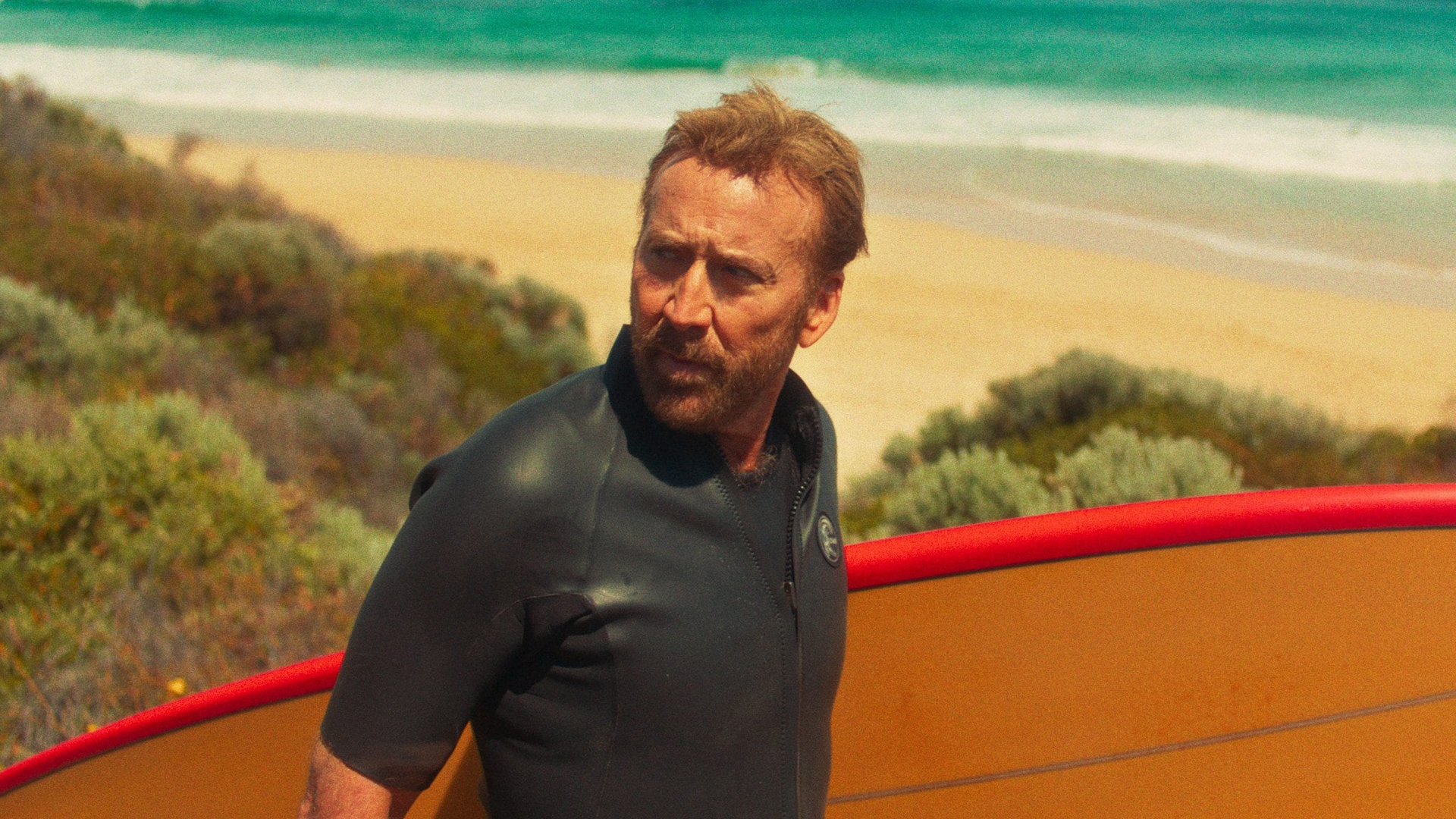
Nothing stays the same in the zeitgeist: change, as they say, is the only constant. Unless we’re talking about Nicolas Cage going crazy, which never drops out of fashion—an extraordinary human spectacle, as enduring as the pyramids. On this front, The Surfer more than delivers the goods, starring old mate Nic as a well-off businessman engaged in all-out war with a gang of violent hoodlums in Luna Bay, a fictitious Australian coastal town.
Cage’s protagonist (known only by the eponymous label) intends to buy the nearby family home he grew up in. But those goons want him gone—stealing his surfboard, ruining his car, and repeatedly serving him the local mantra: “don’t live here, don’t surf here.” The film is set almost entirely in a car park adjacent to the beach, where sky-blue waves and golden sand project postcard-perfect idyllicism: paradise so close, yet so very far away.
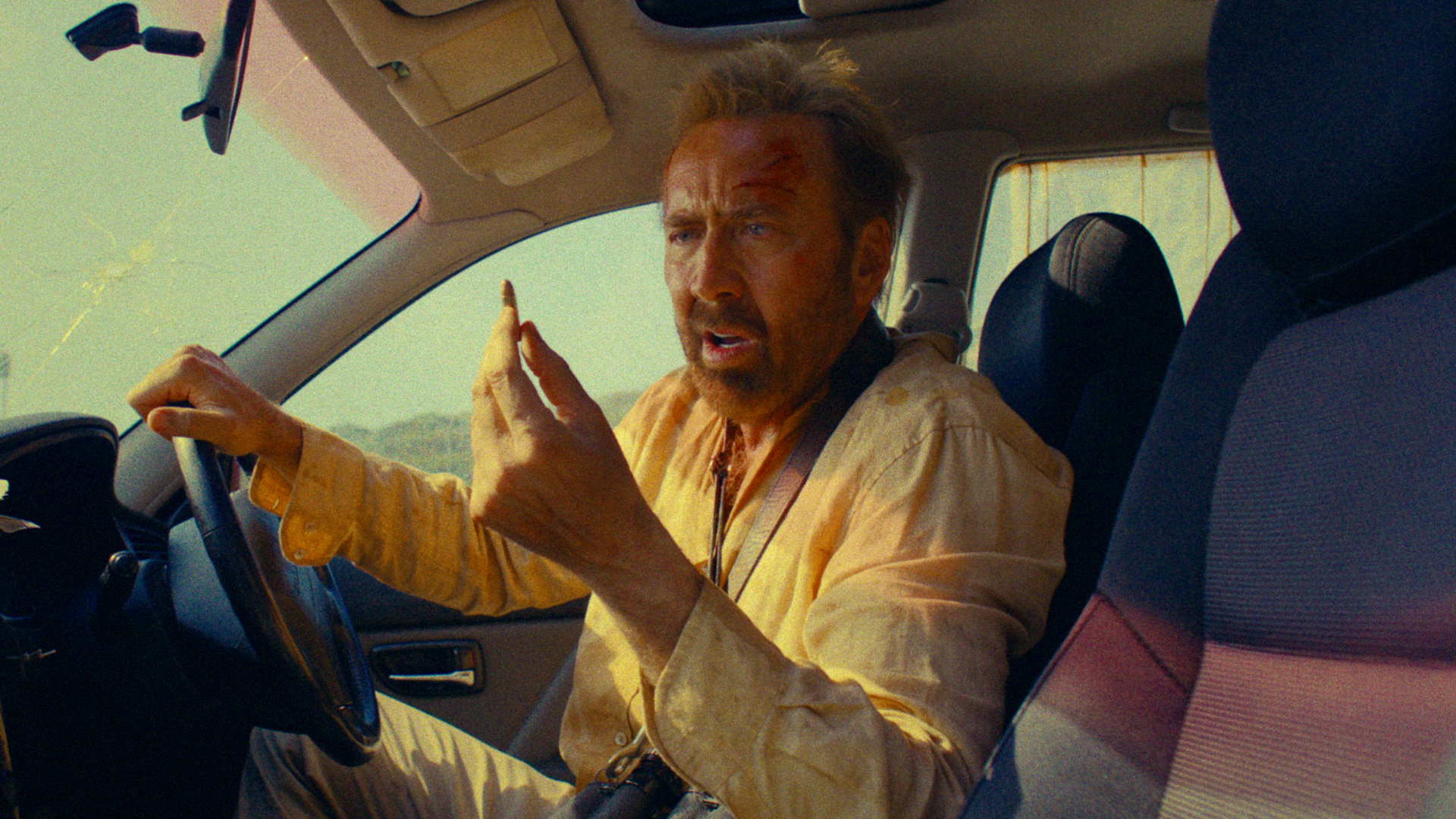
The Surfer becomes increasingly desperate, rattled, and dislodged from reality. Soon he’s drinking beer from puddles and contemplating eating a rodent. Moments when Cage erupts—raising his voice, gnashing his teeth, howling to the moon, stomping around like a wild animal—are his signature manoeuvres: the equivalent of Michael Jackson’s Moonwalk or Elvis Presley’s hip swivel.
Other titles in the actor’s filmography also seem configured to exploit Cage’s trademark off-the-wall style. In the berserk horror movie Mom and Dad, for instance, an unexplained phenomenon turns every parent into a murderous monster, proving a dramatic justification for Cage doing the Hokey Pokey while destroying a pool table with a sledgehammer. And in Willy’s Wonderland, he plays a janitor who battles possessed animatronic animals. Because of course he does.
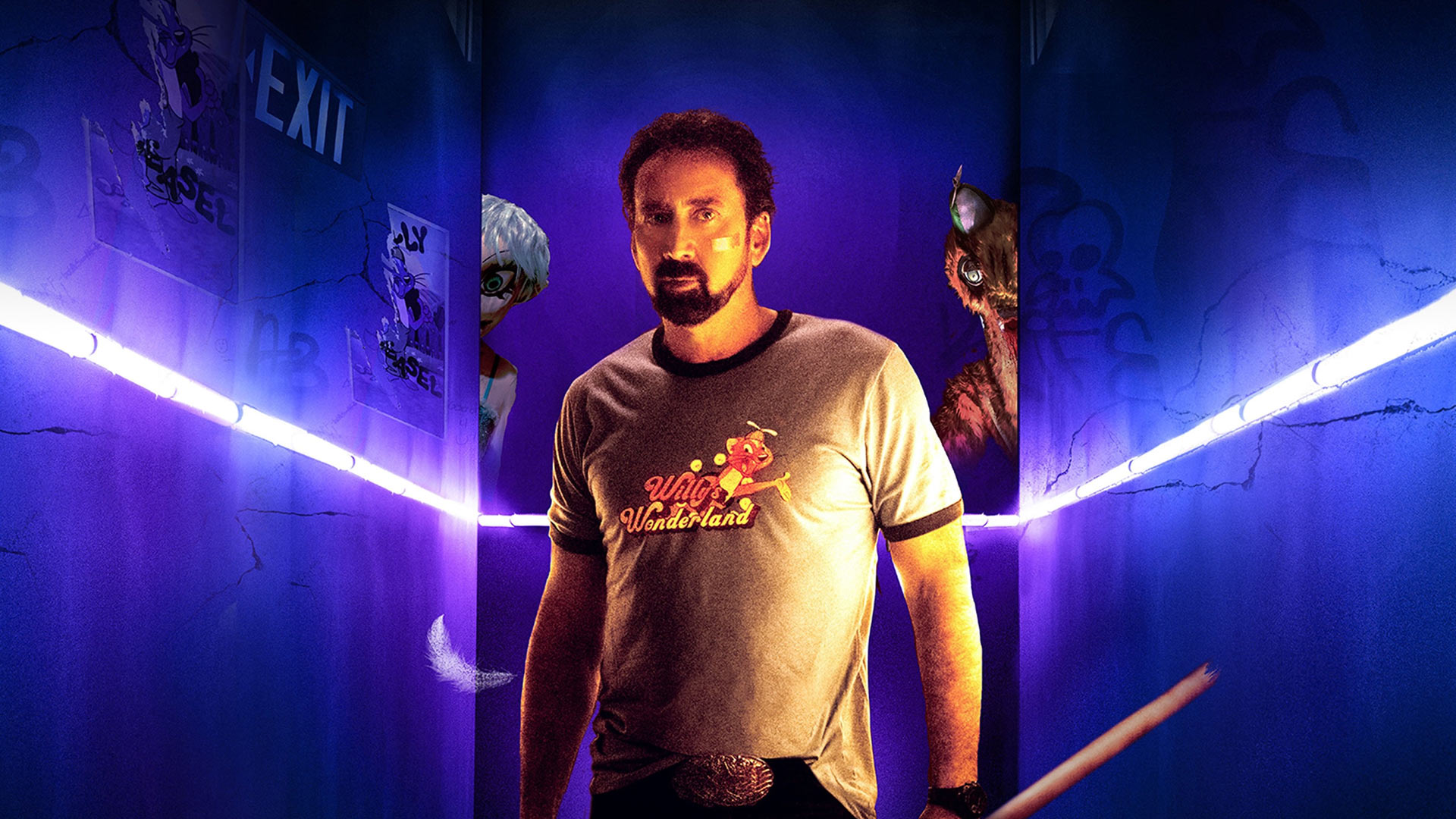
But it’d be wrong to say that Cage doesn’t have a great range and gravitates towards the same characters. He has fantastic range, in fact, and has played a mighty variation of people throughout his very extensive oeuvre. In addition to the aforementioned surfer, janitor and sledgehammer-swinger, these include a magician (Next), a jiu jitsu sensei (Jiu Jitsu), a caveman (The Croods), an assassin (Bangkok Dangerous), a beach bum (The Retirement Plan), a knight (Season of the Witch, Outcast), a soothsaying professor (Knowing), and a loving father in a post-apocalyptic future (Arcadian). And this is only scratching the surface.
Elsewhere you’ll find David Gordon Green’s 2013 drama Joe—a great example of the star dialling down his eccentricity to create something more finely nuanced and subdued. Cage plays Joe Ransom, a hardworking, mostly reformed ex-con in a small Texan town who runs a lumbering business. When a kid, Tye Sheridan’s Gary, asks him for work, Joe obliges and takes the personable youngster under his wing, becoming a father-like figure.

As the protagonist learns more about Gary’s grim personal circumstances, including life with an abusive father, you can feel him moving towards making some kind of moral stand, attempting to shield the boy from the sort of downward spiral he knows all too well. Cage slowly and skillfully peels back layers, challenging our assumptions and expectations; the character we come to know isn’t the person we expected him to be. Joe has anger issues, among other things, though they’re far from the wild and crazy kind, feeling painfully real and subtly evoked.
There are other examples of Cage’s refined, “sensible” roles: for instance as a firefighter in Oliver Stone’s World Trade Center; a state trooper in The Frozen Ground; and a cop-cum-thief in The Trust. All three are rock solid performances. But the sweet spot for me—an obsessive Cage fan, having seen and written about every one of his movies—are productions that allow the star to inject them with unexpected colour and detail.
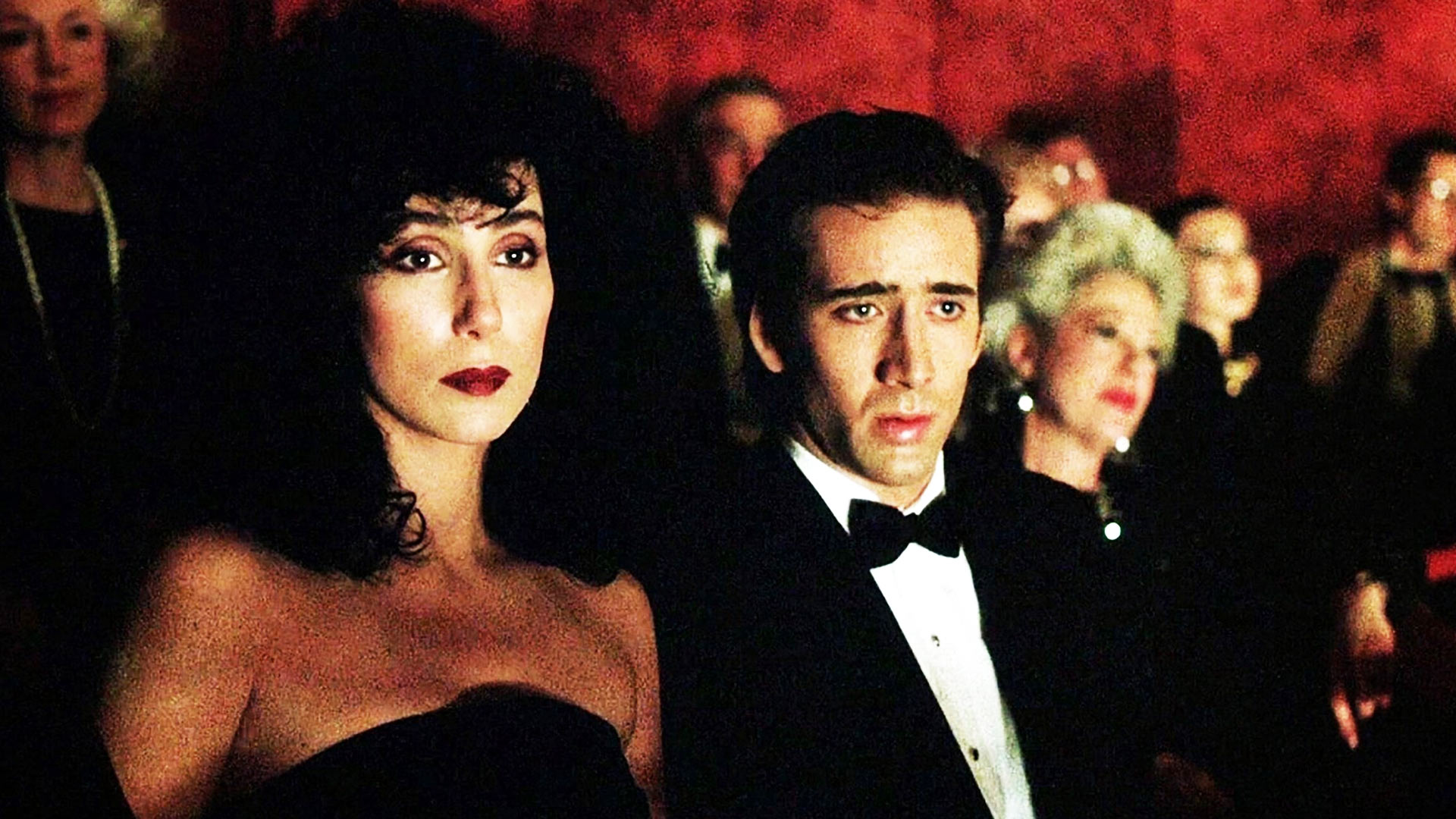
Take, for example, Moonstruck, the classic 1987 rom-com in which he plays a one-handed baker who associates baked dough with quasi-religious significance, proclaiming: “What is life? They say bread is life!”. Starring opposite Cher—playing the woman who falls in love with him—Cage imbues an otherwise fairly sedate film with volatile energy, subverting it from the inside. And take the intensely hallucinogenic Mandy, a damn good revenge movie with an intensely sticky, icky, gluggy ambience, starring Cage as a war veteran avenging the murder of his girlfriend.
Instead of wondering whether the great man has range, here’s a better question to ask: what kinds of characters can’t he play?









